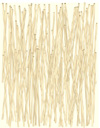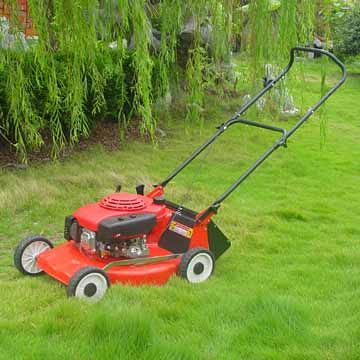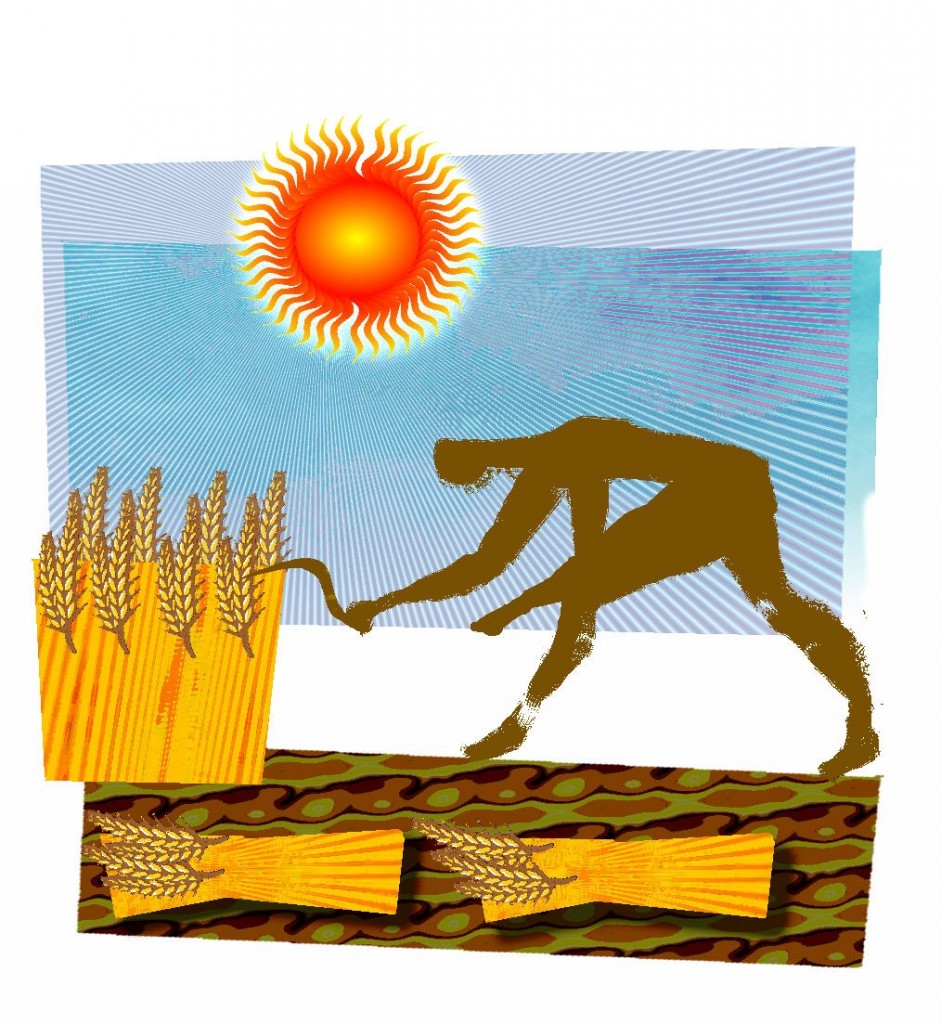Matthew 13:24-30, 36-43
More than half my life ago, after I graduated from junior college, I moved to Milwaukee to live with my brother and his family while I attended university. I hadn’t been there very long when the family went on vacation, leaving me in charge of the house, the dog, the yard and my sister-in-law’s vegetable and flower gardens.
I have to admit, while my family was gone, I probably wasn’t the best caretaker there ever was. So on the day they were due back home , I worked diligently – and frantically. I cleaned the house, and then worked outside. I weeded, I mowed, I edged. And when I was done, after several hours of hard work, I was pretty pleased with myself.
Until I looked over at one flower bed and discovered, to my great horror, a huge weed. A giant weed. A ginORmous weed. How could that have gotten there? I thought. And then I thought: How dare that thing grow in my sister-in-law’s beautiful flower garden?
So I restarted the mower, went over to that ginormous eyesore, and I mowed it into oblivion. Back and forth I went, making sure this … this … thing … was dead, dead, dead.
Then I went and got a trowel and I dug up the roots, removing every trace of this eyesore.
Just as I was satisfied that I had done a good job (no, really, it was a great job!), my family pulled up.
Out jumped my two nieces and one nephew, my brother and my sister-in-law. I was hugging my nephew and chatting with my brother when I heard this terrible shriek from behind me.
“Mom! Where’s my straw plant?!?!?!?”
I looked at my brother and he looked at me, and then he looked at the lawn mower, at the flower bed, at his daughter (who by now was crying hysterically), at his wife, and finally, again, at me.
“Used the lawn mower, didn’t you?” he asked.
“Straw plant?” I whispered. “What’s a straw plant?”
“You had to use the mower, didn’t you?” my brother whispered back.
And then I heard my sister-in-law’s voice behind me.
“Lauren?” she said. (That’s it. She didn’t say anything else. Just “Lauren?”)
I turned and walked across the yard, dragging my feet as I listened to my 6-year-old niece cry – actually, she was wailing – about her beloved straw plant and how it hadn’t grown while she was gone, and what was she going to tell her teacher when she went back to school.
“You used the mower, didn’t you?” she said in that voice that only a mother can use.
“Um, well … I used the mower to cut down a weed,” I said. “Really. It was just a weed. What exactly is a straw plant?”
“It looks like a weed,” she said. “And you cut it down. With the mower.”
“um ….”
 “You used the mower to cut down Jennifer’s straw plant.”
“You used the mower to cut down Jennifer’s straw plant.”
My sister-in-law was not amused.
In fact, she was so not amused that the very next day, my brother and I found ourselves lugging railroad ties into the backyard and placing them around all the flower beds.
“I can’t trust you two not to use the mower,” my sister-in-law mumbled under her breath while she supervised us. “See something you don’t recognize and zoom! Mow it down! I swear, you two know nothing – nothing! – about gardening! I can’t trust either of you with my flowers, can I?”
The lesson I learned that day, the lesson I have never forgotten, was simple:
Do not presume that just because something looks like a weed, it is a weed.
Because there’s a very good chance that what looks like a weed to you is precious in the sight of others.
So don’t take a mower to it!
This is the same lesson that Jesus is trying to teach us in this morning’s Gospel lesson from Matthew: What looks like a weed to us very well could be precious in the sight of God.
Let’s go back to the parable for a moment: The word Matthew quotes Jesus using to name the weeds in the master’s fields – zizania – “in modern botanical terms refers … to wild rice grasses.”[1] But what Matthew is most likely talking about is something called darnel, which is prolific in Palestine. The problem with darnel is that you can’t tell the difference between that and real wheat until harvest time, when both plants have matured. Then, the darnel – bearing nothing life-giving for us – stands up straight and tall. The wheat, on the other hand, droops over from the weight of its life-giving grains.[2] So if you go out into the field before harvest time to weed? The chances are good that you will take out just as much wheat as weed.
So what Jesus is saying is that we have to be careful, to not take a mower to every weed we see, because there’s a chance that what’s a weed to us is precious to God.
Now, let’s be clear about one thing here:
Jesus is talking about evil in this parable, but he is not talking about Capital-E Evil. He’s not talking about injustice and hatred, intolerance and bias, disease and famine and violence and war and genocide. We know what that evil looks like, and we know what we’re supposed to do about those evil thing: we have to working against them and stop them, because if we don’t, then justice will never flow like waters and righteousness like an ever-living stream.
What Jesus is talking about are the smaller evils, the weeds that grow in us: greed, bias, hatred, the need to get ahead by leaving others behind. Anger, and the times we lash out at folks who pass us on the highway or make our jobs more difficult. Jealousy, because someone else has more than we have. Those are the weeds that grow in us all the time.
Those are the same weeds that we like to find in others all the time, don’t we? We love to tell others about their weeds.
But just because we think they’re weeds doesn’t mean God does.
So be careful. Be careful about rooting them out. And for God’s sake, don’t take a mower to them!
• • •
In a couple of days, I’m heading down to Alabama to lead a program for rising 7th and 8th graders at Camp McDowell, the diocesan summer camp. A friend of mine and I are going to lead a program focused on teaching the kids – all 185 of them[3] — that they were created for mission. That God, who created each of us in God’s image of love and community, created us to live in love and community. And that living in love and community is our mission in life.
I want them to learn that God created us to live lives of mission, every moment of their lives.
We’ve come up with a great name for our eight-day program: OMG, Y’all! On a Mission from God, Y’all! (Remember, this is Alabama …) We’re trying to teach these campers that because they are created in the image of God, the image of love and community, they are called to live in that image, to live in love and community every day. And that living in love and community is their mission in life.
But living our lives in love and community is hard. It’s hard, because we see people, we see things that are different, and we react as though that difference is bad, and next thing you know, we’re ready to take a lawnmower to those people and those things, never stopping to think that perhaps God sees things differently, and that what we thought were weeds are precious in God’s sight.
So one of the big lessons I want the campers to learn is this: Different is simply different. It is not better. It is not worse. It simply is different.
Meaning: Just because it looks like a weed to you, don’t – do not – take the lawn mower to it. Not just yet.
Because you never know:
It might just be precious in God’s sight.
So leave the mowers alone, OK?
Amen.
A sermon preached on the 5th Sunday after Pentecost, 17 July 2011, Proper 11, Year A, at St. Luke’s Episcopal Church, Hot Springs, Va.
[1] Elisabeth Johnson, Pastor, Watertown, Minn., “Commentary on the Gospel,” on http://www.workingpreacher.org/preaching.aspx?tab=4&alt=1, lectionary for July 17, 2011.
[2] Ibid.
[3] (or however many register this year)




